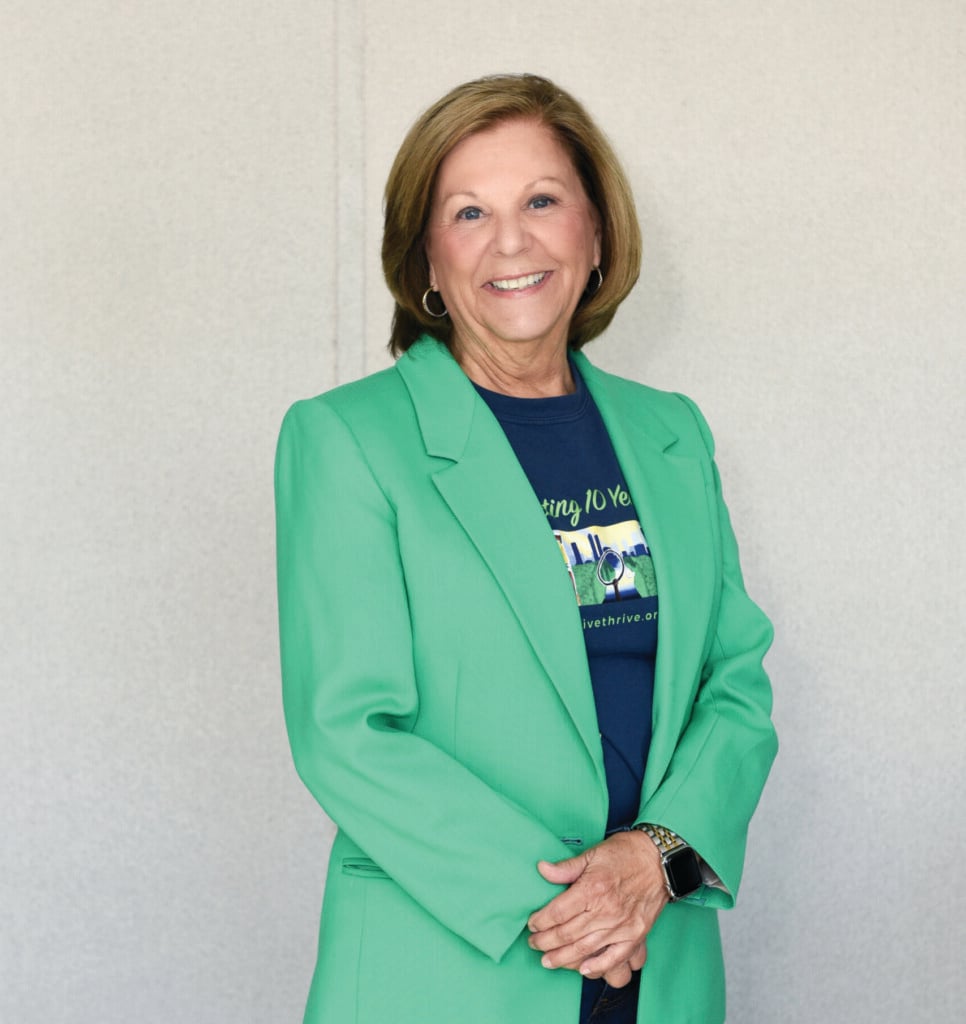Catching up with… Rosaline Kwan
Consul General of Canada to the Southeast United States
Rosaline Kwan is a diplomat with more than 25 years of experience in international trade and foreign policy. She leads the team managing Canada’s bilateral relations with six states. Following are edited highlights from an interview.
 How are goods transported between the Southeast and Canada?
How are goods transported between the Southeast and Canada?
 We have [an annual] $1 trillion trading relationship, supporting about 8 million jobs in the United States. The Southeast is an important part of this relationship. Our office looks after six states: Georgia, North Carolina, South Carolina, Tennessee, Alabama and Mississippi. Within this context, the trade volume is over $61 billion. In Georgia, we have a relationship of over $14 billion. It is incredibly important that everything goes smoothly in terms of flow, logistics and transportation.
We have [an annual] $1 trillion trading relationship, supporting about 8 million jobs in the United States. The Southeast is an important part of this relationship. Our office looks after six states: Georgia, North Carolina, South Carolina, Tennessee, Alabama and Mississippi. Within this context, the trade volume is over $61 billion. In Georgia, we have a relationship of over $14 billion. It is incredibly important that everything goes smoothly in terms of flow, logistics and transportation.
There are a number of transportation modes for goods. Canadian National is a rail company with networks across the United States and Canada. We have a network of road surface transfer companies, like trucking companies. Thirdly, our border sees trade volumes up to or at $2.5 billion a day. Lastly, we have shipping with ports in the Southeast, like Savannah.
 Georgia holds sixth place for overall trade in the U.S. Tell us about how tariffs might impact Georgia.
Georgia holds sixth place for overall trade in the U.S. Tell us about how tariffs might impact Georgia.
 Canada is the U.S.’s biggest export market. And Canada is Georgia’s No. 1 customer. However, with current dynamics we are in a challenging time, and there is concern regarding potential implementation of trade measures by the United States. We are watching very closely. What we do understand from the administration is there are a number of things they want Canada to pay attention to, such as our shared border and fentanyl.
Canada is the U.S.’s biggest export market. And Canada is Georgia’s No. 1 customer. However, with current dynamics we are in a challenging time, and there is concern regarding potential implementation of trade measures by the United States. We are watching very closely. What we do understand from the administration is there are a number of things they want Canada to pay attention to, such as our shared border and fentanyl.
 How is Canada is addressing these two issues?
How is Canada is addressing these two issues?
 Less than 1% of fentanyl that comes into the United States [comes] from Canada. Nevertheless, we pay attention to the concerns of the U.S. administration, and we’re taking actions. We have a plan that looks at strict technology, personnel and equipment to make sure that we minimize irregular movements, as well as trying to eliminate the flow of fentanyl. Most recently, we have appointed a fentanyl czar to work with Canadian and American authorities to meet those objectives. I have 10,000 personnel at the border and eyes on the border 24/7. We believe these things will reduce these flows.
Less than 1% of fentanyl that comes into the United States [comes] from Canada. Nevertheless, we pay attention to the concerns of the U.S. administration, and we’re taking actions. We have a plan that looks at strict technology, personnel and equipment to make sure that we minimize irregular movements, as well as trying to eliminate the flow of fentanyl. Most recently, we have appointed a fentanyl czar to work with Canadian and American authorities to meet those objectives. I have 10,000 personnel at the border and eyes on the border 24/7. We believe these things will reduce these flows.
In terms of the … situation … with trade measures – tariffs – we are concerned. Our Canadian companies have also expressed concern. But also important is that American companies and organizations are also expressing concern because smooth, undisrupted supply chains are good for everyone. If there is a disruption, it causes a negative impact for American companies and organizations. When there are tariffs, usually the buyer or the organization bringing in the product covers the additional costs. And many economists say those additional costs get passed on down to the consumer.
For businesses, it could mean disruptions in production, causing unpredictability. The disruptions can cause issues at the level of supply chains and workers. This means American workers could potentially be affected both in [not] having smooth production for their products and for the jobs created by the impressive trade volumes between the two countries. So, trade measures like tariffs could have a very negative impact on workers, consumers and U.S. businesses.
 Can you address Canadian boycotts of U.S. travel and goods following President Trump’s remarks that Canada should be the 51st U.S. state?
Can you address Canadian boycotts of U.S. travel and goods following President Trump’s remarks that Canada should be the 51st U.S. state?
 Canada is a sovereign country, and Canadians have a strong sense of national pride. Reports show that there has been a significant drop in travel by Canadians to the U.S. compared to the same period last year, and this is certain to have an impact on U.S. businesses. In the current context and with the threat of tariffs, many Canadians are finding ways to contribute to the Canadian economy, including by buying Canadian products and spending their travel dollars to visit places across our country, from coast to coast to coast. Canadians are galvanized and are working together to protect, serve and support Canada.
Canada is a sovereign country, and Canadians have a strong sense of national pride. Reports show that there has been a significant drop in travel by Canadians to the U.S. compared to the same period last year, and this is certain to have an impact on U.S. businesses. In the current context and with the threat of tariffs, many Canadians are finding ways to contribute to the Canadian economy, including by buying Canadian products and spending their travel dollars to visit places across our country, from coast to coast to coast. Canadians are galvanized and are working together to protect, serve and support Canada. 







